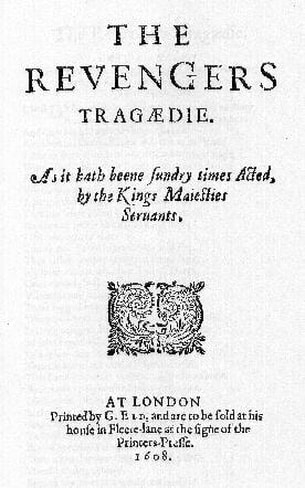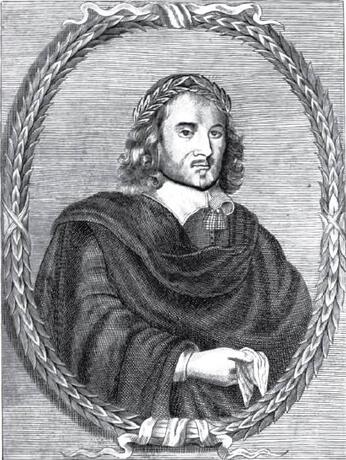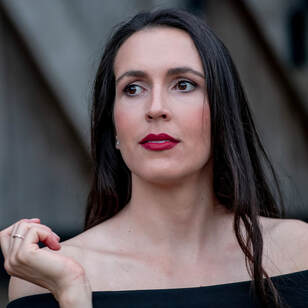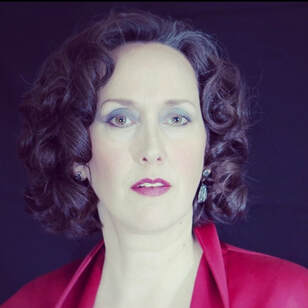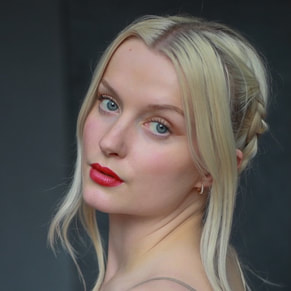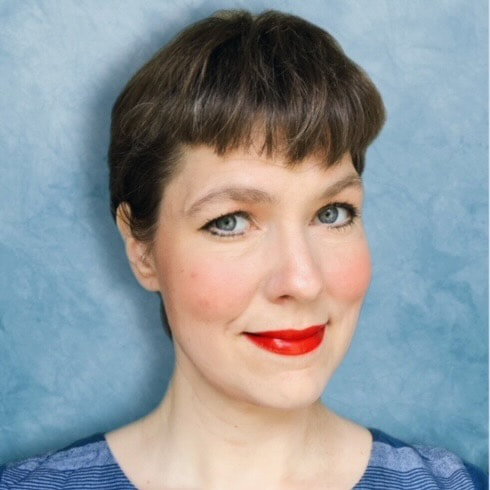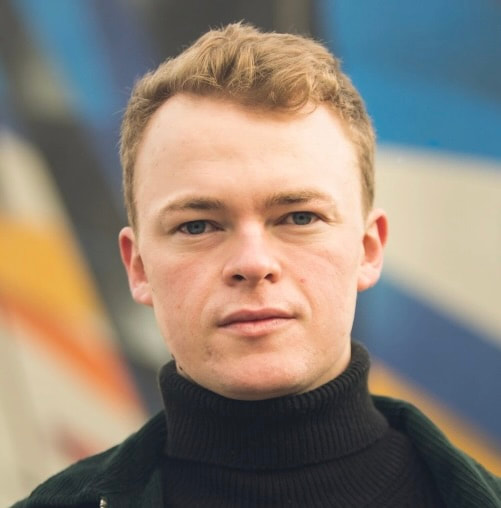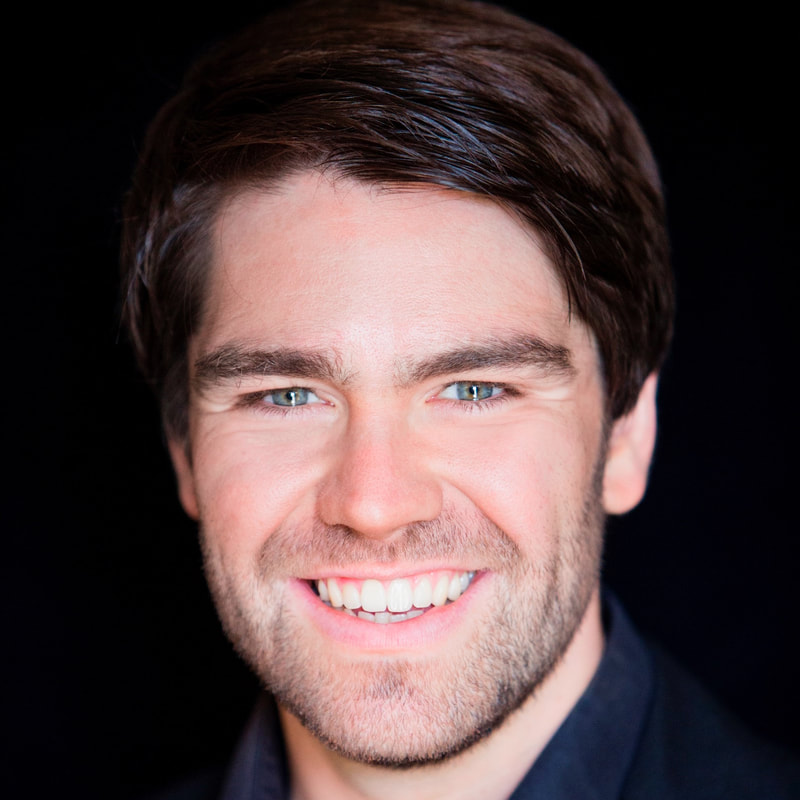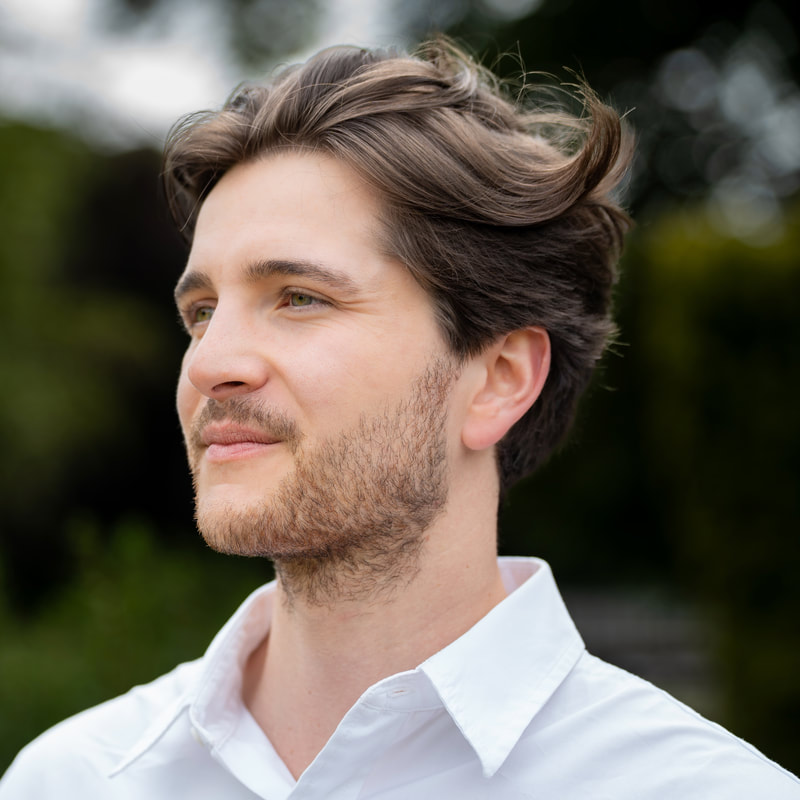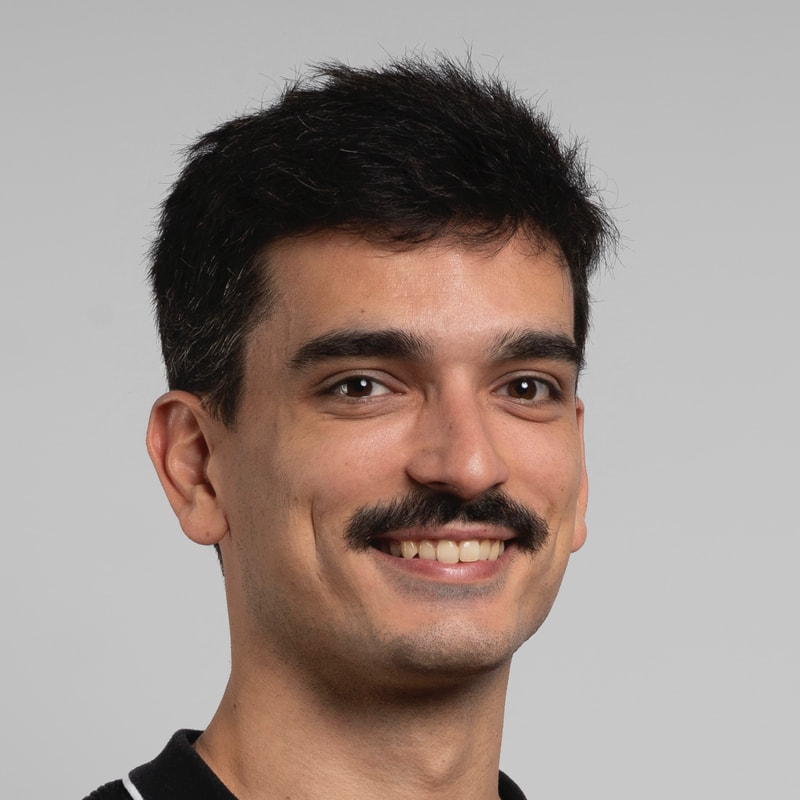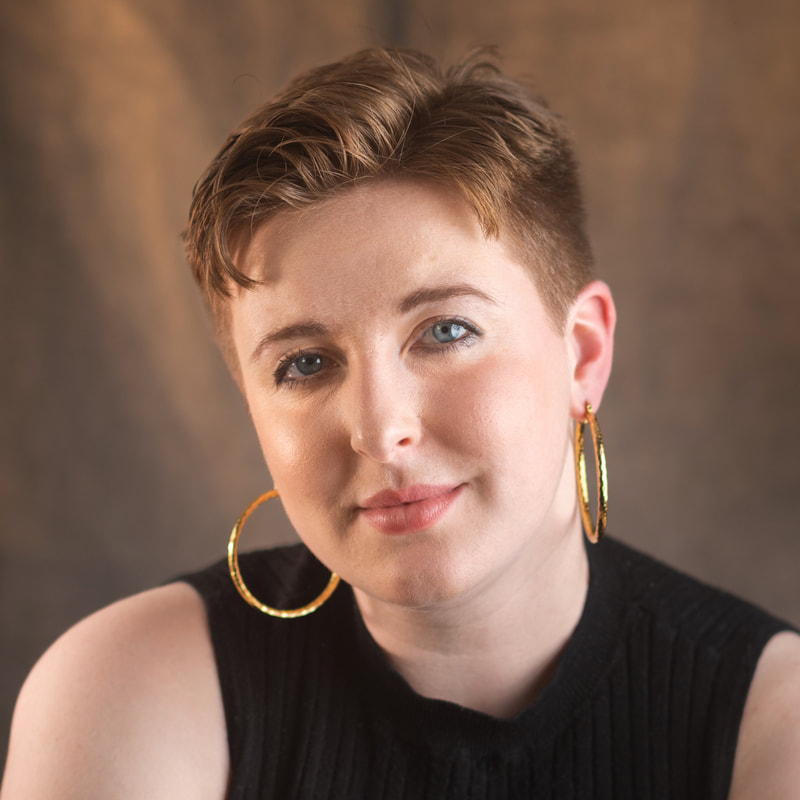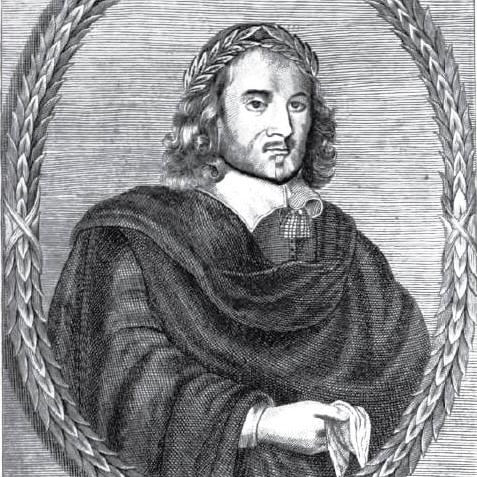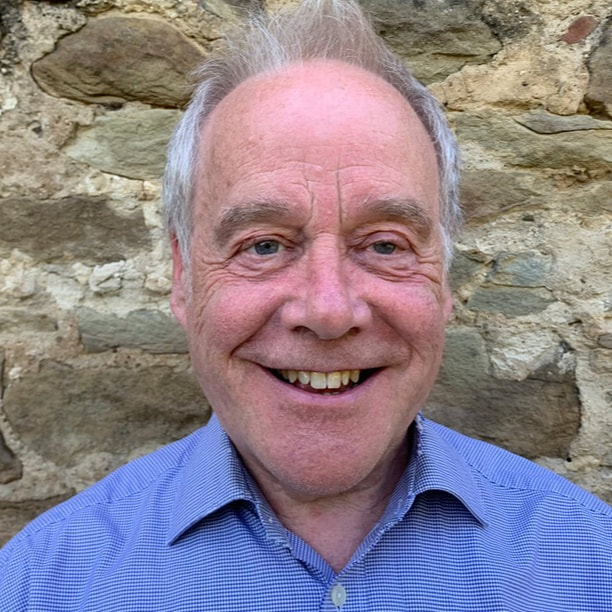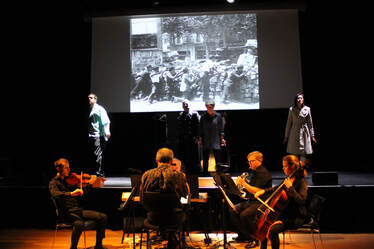Masque of Vengeance
Adapted from The Revenger's Tragedy
The Stoller Hall, Manchester M3 1DA
Sunday 12 November 2023
The Stoller Hall, Manchester M3 1DA
Sunday 12 November 2023
Music: Edward Lambert (2023)
Words: Thomas Middleton (1606)
with some additional verses by Thomas Campion (1567-1620)
Director: David Edwards
Design: Tabitha Benton-Evans
Movement: Jenny Weston
In order of singing:
Vindicio, the revenger, often disguised as Caria, a procuress
Leila Zanette (mezzo-soprano)
King, an elderly ruler
Charles Johnston (baritone)
Duchess, the King's new wife
Laure Meloy (soprano)
Prince, the King's son by a previous marriage, heir to the throne
Francis Gush (counter-tenor)
Spurio, the King's illegitimate son
Lawrence Thackeray (tenor)
Antonio, a gentleman at court
Christopher Foster (bass)
Vacuo, the Duchess' son by a previous marriage
Will Diggle (tenor)
Gratiana, mother to Vindicio & Virginia
Mae Heydorn (contralto)
Virginia, Vindicio's sister
Madeline Robinson (soprano)
Voice at the Masque
Charles Johnston
Piano duet: Alex Norton, Adrian Salinero
Distant voices: sung by members of the cast
Words: Thomas Middleton (1606)
with some additional verses by Thomas Campion (1567-1620)
Director: David Edwards
Design: Tabitha Benton-Evans
Movement: Jenny Weston
In order of singing:
Vindicio, the revenger, often disguised as Caria, a procuress
Leila Zanette (mezzo-soprano)
King, an elderly ruler
Charles Johnston (baritone)
Duchess, the King's new wife
Laure Meloy (soprano)
Prince, the King's son by a previous marriage, heir to the throne
Francis Gush (counter-tenor)
Spurio, the King's illegitimate son
Lawrence Thackeray (tenor)
Antonio, a gentleman at court
Christopher Foster (bass)
Vacuo, the Duchess' son by a previous marriage
Will Diggle (tenor)
Gratiana, mother to Vindicio & Virginia
Mae Heydorn (contralto)
Virginia, Vindicio's sister
Madeline Robinson (soprano)
Voice at the Masque
Charles Johnston
Piano duet: Alex Norton, Adrian Salinero
Distant voices: sung by members of the cast
Synopsis
The story portrays a criminal regime full of rivalry, lust and murder.
(Scene 1) Vindicio (played by a mezzo-soprano) is a guy who's on the run. He has with him the death mask of his fiancée. The King murdered her and violated her corpse. Vindicio's mother, Gratiana, was widowed and along with his sister, Virginia, reduced to poverty. Vindicio plots revenge on the King's regime.
(Scene 2) Antonio is a senior courtier whose daughter has killed herself following her rape by Vacuo. At his trial, the King cynically condemns his stepson's behaviour but defers the death sentence and remands him in custody, much to the dismay of the Duchess, whose favourite child he is, and of Antonio, who wants justice for his daughter.
(Scene 3) Vindicio spends much of the drama disguised as a madam procuress called Caria, who is sought out by the Prince to engage a local girl whom he lusts over. This turns out to be Vindicio's sister, Virginia.
(Scene 4) Vindicio - as Caria - goes to the house of his mother and sister and, testing them, tries to persuade Virginia to yield to the Prince's lust. Horrified at first, Gratiana soon sees this liaison as a way out of poverty. Virginia, however, will have none of it. Vindicio rejoices at his sister's purity.
(Scene 5) The Duchess, angry at being sidelined by the King, starts an affair with Spurio, the King's bastard son, who's ambitious for the crown. Vindicio spies them together.
(Scene 6) Vindicio (still as Caria) reports back to the Prince who is eager to bed Virginia. Vindicio diverts his attention by mentioning the affair between the Duchess and Spurio. The Prince rushes to the Duchess's bedroom with sword drawn - but finds only the King in bed with her. The ensemble expresses shock and horror. The Prince is arrested for treason and borne away to prison. Antonio is given the King's signet ring as authority for the Prince's execution.
(Scene 7) Vindicio again confronts Gratiana, but this time as himself. When she repents of wanting to sell her daughter, Vindicio forgives her.
(Scene 8) Accompanied by the sound of distant choral singing, Antonio uses the authority granted by the King to kill Vacuo - rather than the Prince - in his prison cell, in revenge for the death of his daughter. Vacuo dies unrepentant.
(Scene 9) The King has decided he needs a new adventure and has employed Caria to fetch him a girl. He's coming to an assignation in a suitably dark cemetery where Vindicio is setting a trap for him.
'Caria' is assisted by Virginia and Gratiana who have become co-conspirators. Virginia is dressed up for the kill.
To the death mask of Vindicio's fiancée, the trio apply poison on its lips. Virginia puts on the death mask and when the King arrives he attempts to kiss her. He tastes the poison and lies dying while Vindicio reveals his true identity.
The Duchess and Spurio meet nearby for their sexual encounter. As a final humiliation, Vindicio forces the King to watch them and then, having cut out his tongue, stabs him to finish him off.
(Scene 10) Taking off his disguise, Vindicio dresses the King's corpse in Caria's clothes. The Prince arrives celebrating his release from prison and wanting Caria killed because of the trick she played on him. He employs Vindicio for the job (not knowing they are one and the same) so Vindicio pretends to kill the sleeping Caria. The Prince is concerned to find that the corpse is not Caria's but that of the King.
Others arrive on the scene. 'Caria' is implicated in the King's murder for it appears "she" must have carried out the crime and fled in the King's clothes. To everyone's relief, the Prince is proclaimed the new king and festivities are ordered.
(Scene 11) While the Prince's "coronation" is in progress, Virginia prepares to participate in the final act of vengeance. The company dance a masque during which the Prince's throat is cut. Spurio proclaims himself king but the dying Prince draws a pistol and shoots him dead. Vindicio now hails Antonio as the new ruler and boasts about killing the old King. Antonio declares, "You that would murder him would murder me!" and runs his sword through Vindicio.
- The ruler, known as the 'King', has a son by a previous marriage called 'Prince' Lussurioso, the heir to the empire.
- The King also has an illegitimate son called Spurio.
- The King's new wife, the 'Duchess', has a son from her previous marriage called Vacuo.
(Scene 1) Vindicio (played by a mezzo-soprano) is a guy who's on the run. He has with him the death mask of his fiancée. The King murdered her and violated her corpse. Vindicio's mother, Gratiana, was widowed and along with his sister, Virginia, reduced to poverty. Vindicio plots revenge on the King's regime.
(Scene 2) Antonio is a senior courtier whose daughter has killed herself following her rape by Vacuo. At his trial, the King cynically condemns his stepson's behaviour but defers the death sentence and remands him in custody, much to the dismay of the Duchess, whose favourite child he is, and of Antonio, who wants justice for his daughter.
(Scene 3) Vindicio spends much of the drama disguised as a madam procuress called Caria, who is sought out by the Prince to engage a local girl whom he lusts over. This turns out to be Vindicio's sister, Virginia.
(Scene 4) Vindicio - as Caria - goes to the house of his mother and sister and, testing them, tries to persuade Virginia to yield to the Prince's lust. Horrified at first, Gratiana soon sees this liaison as a way out of poverty. Virginia, however, will have none of it. Vindicio rejoices at his sister's purity.
(Scene 5) The Duchess, angry at being sidelined by the King, starts an affair with Spurio, the King's bastard son, who's ambitious for the crown. Vindicio spies them together.
(Scene 6) Vindicio (still as Caria) reports back to the Prince who is eager to bed Virginia. Vindicio diverts his attention by mentioning the affair between the Duchess and Spurio. The Prince rushes to the Duchess's bedroom with sword drawn - but finds only the King in bed with her. The ensemble expresses shock and horror. The Prince is arrested for treason and borne away to prison. Antonio is given the King's signet ring as authority for the Prince's execution.
(Scene 7) Vindicio again confronts Gratiana, but this time as himself. When she repents of wanting to sell her daughter, Vindicio forgives her.
(Scene 8) Accompanied by the sound of distant choral singing, Antonio uses the authority granted by the King to kill Vacuo - rather than the Prince - in his prison cell, in revenge for the death of his daughter. Vacuo dies unrepentant.
(Scene 9) The King has decided he needs a new adventure and has employed Caria to fetch him a girl. He's coming to an assignation in a suitably dark cemetery where Vindicio is setting a trap for him.
'Caria' is assisted by Virginia and Gratiana who have become co-conspirators. Virginia is dressed up for the kill.
To the death mask of Vindicio's fiancée, the trio apply poison on its lips. Virginia puts on the death mask and when the King arrives he attempts to kiss her. He tastes the poison and lies dying while Vindicio reveals his true identity.
The Duchess and Spurio meet nearby for their sexual encounter. As a final humiliation, Vindicio forces the King to watch them and then, having cut out his tongue, stabs him to finish him off.
(Scene 10) Taking off his disguise, Vindicio dresses the King's corpse in Caria's clothes. The Prince arrives celebrating his release from prison and wanting Caria killed because of the trick she played on him. He employs Vindicio for the job (not knowing they are one and the same) so Vindicio pretends to kill the sleeping Caria. The Prince is concerned to find that the corpse is not Caria's but that of the King.
Others arrive on the scene. 'Caria' is implicated in the King's murder for it appears "she" must have carried out the crime and fled in the King's clothes. To everyone's relief, the Prince is proclaimed the new king and festivities are ordered.
(Scene 11) While the Prince's "coronation" is in progress, Virginia prepares to participate in the final act of vengeance. The company dance a masque during which the Prince's throat is cut. Spurio proclaims himself king but the dying Prince draws a pistol and shoots him dead. Vindicio now hails Antonio as the new ruler and boasts about killing the old King. Antonio declares, "You that would murder him would murder me!" and runs his sword through Vindicio.
"He who lives by the sword, dies by the sword."
Edward Lambert introduces his new operas.
That is the message of The Revenger’s Tragedy, upon which Masque of Vengeance is based, a cautionary tale of rivalry between dysfunctional criminal factions. Thomas Middleton’s play is set in an Italian court and there was certainly good reason for that: for the English establishment in the early 1600s, its subversive plot could have become rather too close for comfort. By placing the action in Italy, the corrupt, murderous and lecherous cast of villains are by implication enemy Catholics. The play, performed at the Globe the year following the Gunpowder Plot, satirises the tragedy inherent in a cycle of violence. But its sardonic wit has endured and it feels as though it could be set anywhere in contemporary society, from gangland to a seat of political power.
Nevertheless, turning The Revenger’s Tragedy into Masque of Vengeance was an attempt to write an “Italian” opera. That is to say, to emulate an approach in which the voice is pre-eminent and the music is structured around opportunities for classically-trained singers to show what they can do. I wanted the cast to enjoy singing the piece. Besides, the plot seemed worthy of many an Italian opera and I quickly decided to make Vindicio a trouser role (a male played by a female) in line with an old tradition. Then, when he plays the pimp, it seemed obvious for him to put on a disguise as the female Caria. (In the original, both personae are male). Compared to the play, I trimmed the character count, omitted many smaller roles and reduced the size of the ruling family's younger generation. I changed some character names for simplicity's sake. Of course, the text was abridged in the process but I believe the essence of the play is retained.
In this, as well as in some other recent works, I’ve employed a piano duet as accompaniment. Four hands are capable of a large range of dramatic and colourful sonorities - four equals two squared, as it were. My focus has been to compose opera as purpose-built chamber music, not just out of necessity, but to exploit the impact that such voices and instruments can have in intimate spaces. Large institutions take an enormous risk in producing new operas, so they're as rare as hen's teeth. The standard repertory has shrunk to the dozen or two works that can attract an audience. How can this state of affairs be sustained? What other art form comprises such a small number of 'classic' favourites? Opera is clearly capable of infinite variation and renewal so surely new opera should be 'out there'? At the very least, small-scale works can be accessible, economical and suited to all kinds of venues.
Chamber works constituted the origins of opera when it was trialled in Florence at the end of the 16th century. And so my other “Italian” opera, The Duchess of Padua, written just before the pandemic for a cast of four, I termed a 'parlour opera'. In the play on which it's based, Oscar Wilde was emulating Jacobean tragedy - so the two pieces make unlikely bedfellows. Masque of Vengeance is a dark comedy, an almost farcical bloodbath, whereas Wilde’s tragic love story is more human, genuinely touching, even if the situations feel rather Gothic at times. Wilde portrays an idealised love thrown off course by the pursuit of honour, but in the process reveals many feminist insights: the Duchess turns into a modern character who determines to shake free of her controlling husband, while her young lover 'grows up' as he learns to regard her as a woman rather than an ideal.
This development of character in confronting Fate or a dilemma, such an essential ingredient of great tragedy, is absent in Masque of Vengeance; rather, the cast is trapped in their roles. The three female characters, Duchess, Gratiana & Virginia, are slaves to passion, money and purity respectively with the male gaze being, of course, directed towards the latter. I've given Gratiana and her daughter greater roles as eventual co-conspirators with Vindicio: they are the underdogs taking on their oppressors. Those men, with the possible exception of Antonio, are unattractive, misogynistic and cynical. Yet, although they're dangerous, they don’t seem entirely serious, their motivations don’t ring true and they’re rather stupid. Thus, Vindicio is able to play them along like a puppet-master.
The result is that the play appears to be about theatricality itself - no pretence that it's real - making it ideal for translation into the artificialities of opera. Vindicio is often a spectator himself. He introduces to us the ruling regime at the end of Scene 1, he spies upon the Duchess and Spurio in Scene 5, and when he's not looking on he's mostly disguised as Caria. Comedy comes to the fore in the scene in which Vindicio is asked to stab his alter ego, so in effect our main character kills off his disguise: "So, so, I must kill myself!" Only the sensible, down-to-earth Virginia has any integrity and, ultimately (in my version at least), she deserves her victory over the men who would exploit and abuse her.
———————————————————————————————-
The Duchess of Padua is at The Anthony Burgess Foundation, M1 5BY on Sunday 03 March 202
More details at http://musictroupe.co.uk
These performances are generously supported by the Vaughan Williams Foundation and an anonymous donor
Enjoyed it?
Please consider supporting us!
It’s bad enough these days trying to get any artistic endeavour off the ground: how much harder it is for a small charity to put on performances of a brand new opera! In doing so, we are supporting the work of talented, professional artists during a time of dwindling opportunities for them AND - we fly the flag for the survival of opera because without new, small-scale, economical works the art form will become ever more associated with its expensive and exclusive past.
Please consider supporting us!
It’s bad enough these days trying to get any artistic endeavour off the ground: how much harder it is for a small charity to put on performances of a brand new opera! In doing so, we are supporting the work of talented, professional artists during a time of dwindling opportunities for them AND - we fly the flag for the survival of opera because without new, small-scale, economical works the art form will become ever more associated with its expensive and exclusive past.
Save the date!
Our next production is The Duchess of Padua on the play by Oscar Wilde showing at The Space London E14 3RS Tue 20 - Sun 25 Feb 2024
Our next production is The Duchess of Padua on the play by Oscar Wilde showing at The Space London E14 3RS Tue 20 - Sun 25 Feb 2024
